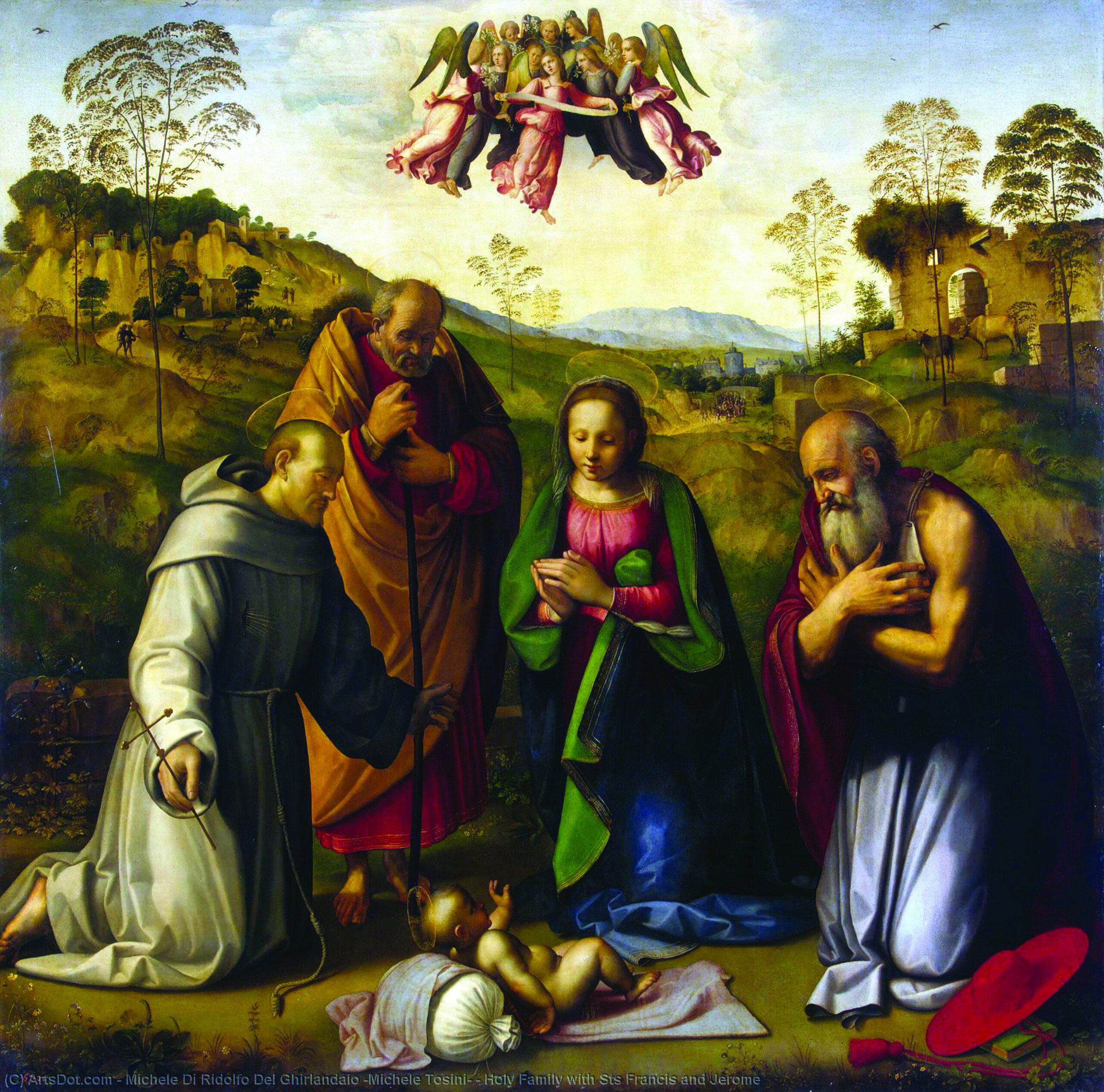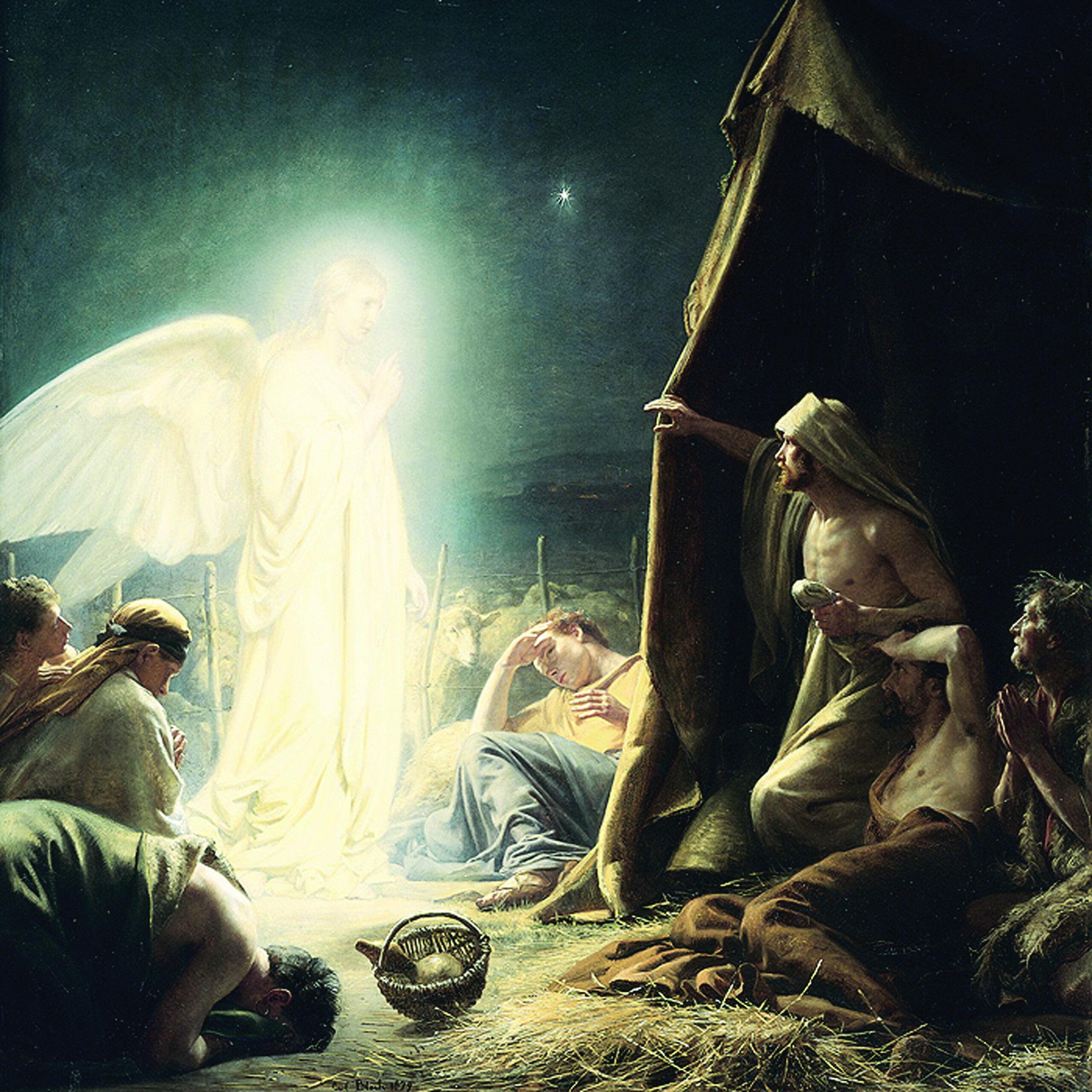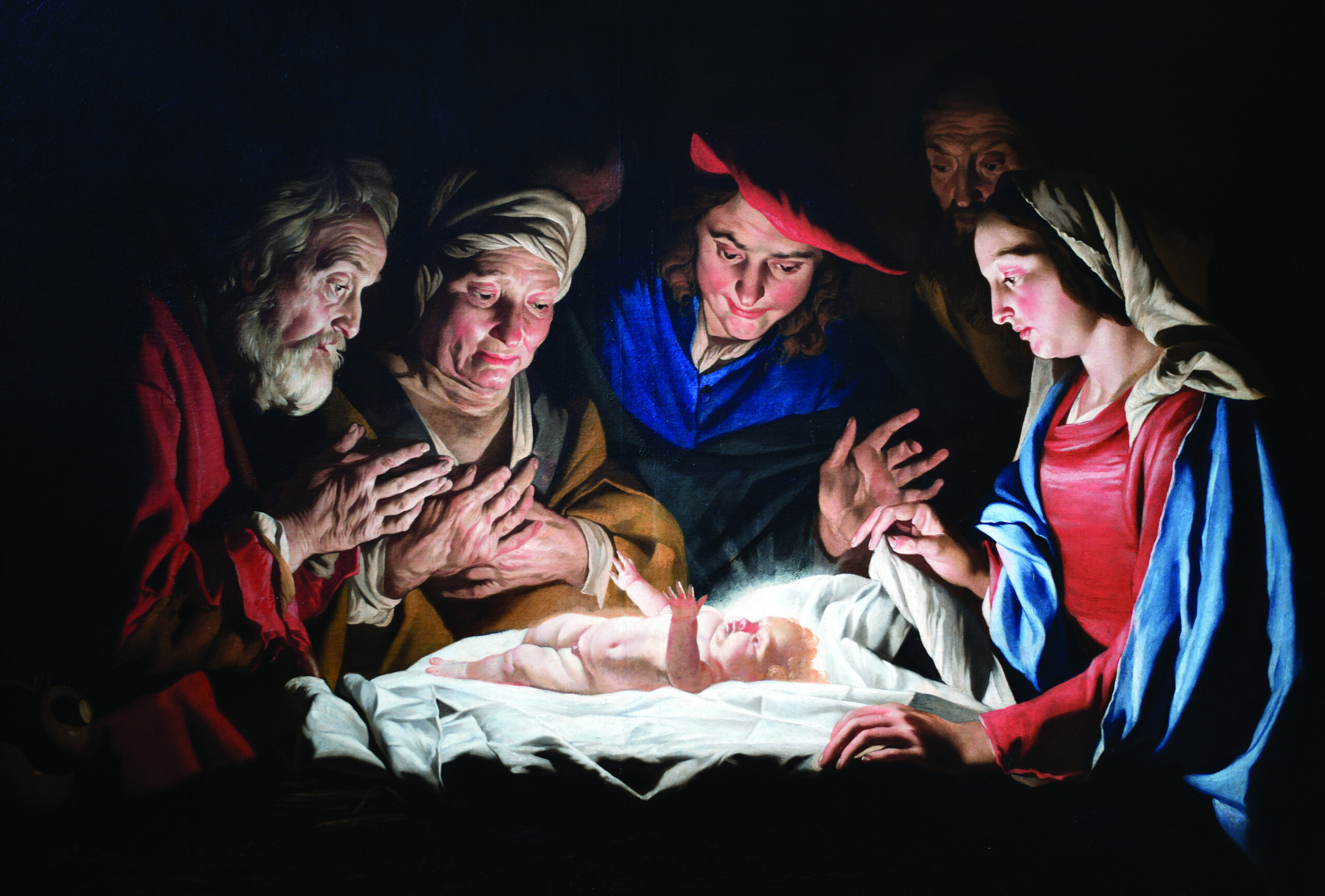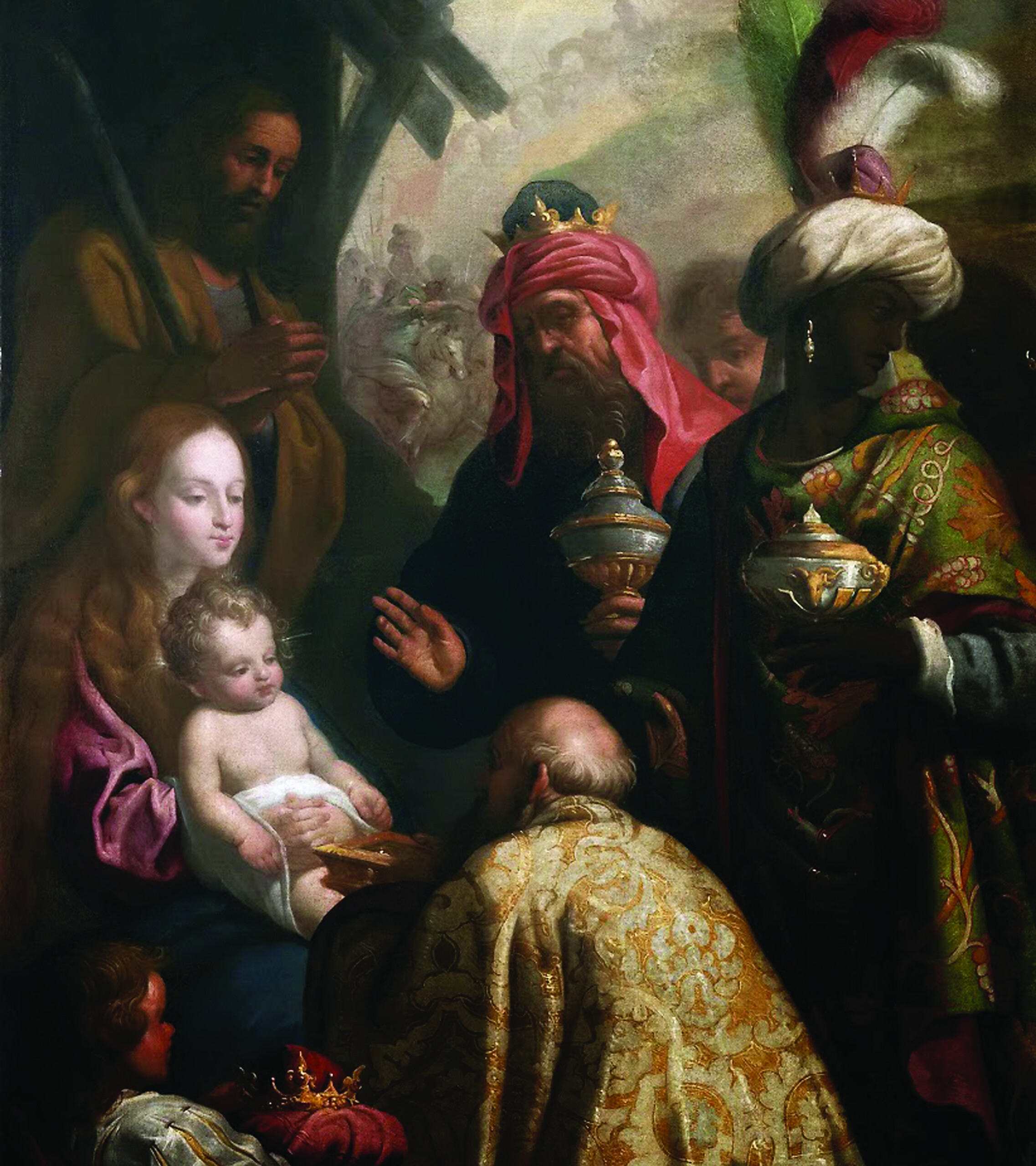“And thou, Bethlehem, Ephrata… out of thee shall He come forth unto Me, that is to be the ruler in Israel.” — Micah 5:2
St. Thomas Aquinas (1225-1274), the Church’s “Angelic Doctor,” wrote with remarkable breadth and detailed insight on thousands of questions pertaining to God, man and the Catholic faith.
In his Summa Theologiae, he speaks of the significance of the details of the Nativity story — details with which we are all familiar, yet have, perhaps, never considered in the way St. Thomas does.

Adoration of the Lord with Saints Francis and Jerome, by Ridolfo del Ghirlandaio (1483-1561), Museum of Fine Arts of Lyon, France

Announcement of Christ’s Birth to Shepherds, by Carl Bloch (1834-1890)
He was born during the reign of Augustus Caesar
“When the fulness of the time was come, God sent His Son, made of a woman, made under the law.” – Galatians 4:4
Christ came in order to bring us back from a state of bondage to a state of liberty. And therefore, as He took our mortal nature in order to restore us to life, so, as Bede says (Luke 2:4-5), “He deigned to take flesh at such a time that, shortly after His birth, He would be enrolled in Caesar’s census, and thus submit Himself to bondage for the sake of our liberty.”
Moreover, at that time, when the whole world lived under one ruler, peace abounded on the earth. Therefore it was a fitting time for the birth of Christ, for “He is our peace, who hath made both one,” as it is written (Ephesians 2:14). Wherefore Jerome says in Isaiah 2:4: “If we search the page of ancient history, we shall find that throughout the whole world there was discord until the 28th year of Augustus Caesar: but when our Lord was born, all war ceased”; according to Isaiah 2:4: “Nation shall not lift up sword against nation.”
– Summa Theologiae, Third Part, Question 35, Article 7
He was born in Bethlehem
“Like the lily, it shall bud forth and blossom, and shall rejoice with joy and praise.” — Isaiah 35:1-2
Christ willed to be born in Bethlehem for two reasons. First, because “He was made . . . of the seed of David according to the flesh,” as it is written (Romans 1:3); to whom also was a special promise made concerning Christ. According to 2 Samuel 23:1: “The man to whom it was appointed concerning the Christ of the God of Jacob . . . said.” Therefore He willed to be born at Bethlehem, where David was born, in order that by the very birthplace the promise made to David might be shown to be fulfilled. The Evangelist points this out by saying: “Because He was of the house and of the family of David.” Secondly, because, as Gregory says (Hom. viii in Evang.): “Bethlehem is interpreted ‘the house of bread.’ It is Christ Himself who said, ‘I am the living Bread which came down from heaven.’”
– Summa Theologiae, Third Part, Question 35, Article 7

Adoration of the Shepherds, by Dutch painter Matthias Stomer, c. 1640-1645, Palazzo Madama, Turin

The Adoration of the Magi, by Eugenio Cajés, c. 1625, Prado Museum, Madrid
He is our Light and our Hope of Salvation
“The people walking in darkness have seen a great Light” – Isaiah 9:2
As says the author of the book De Qq. Nov. et Vet. Test. (Questions on the Old and New Testaments), “Christ wished to be born, when the light of day begins to increase in length,” so as to show that He came in order that man might come nearer to the Divine Light, according to Luke 1:79: “To enlighten them that sit in darkness and in the shadow of death.” In like manner He chose to be born in the rough winter season, that He might begin from then to suffer in body for us.
– Summa Theologiae, Third Part, Question 35, Article 8






Facebook Comments